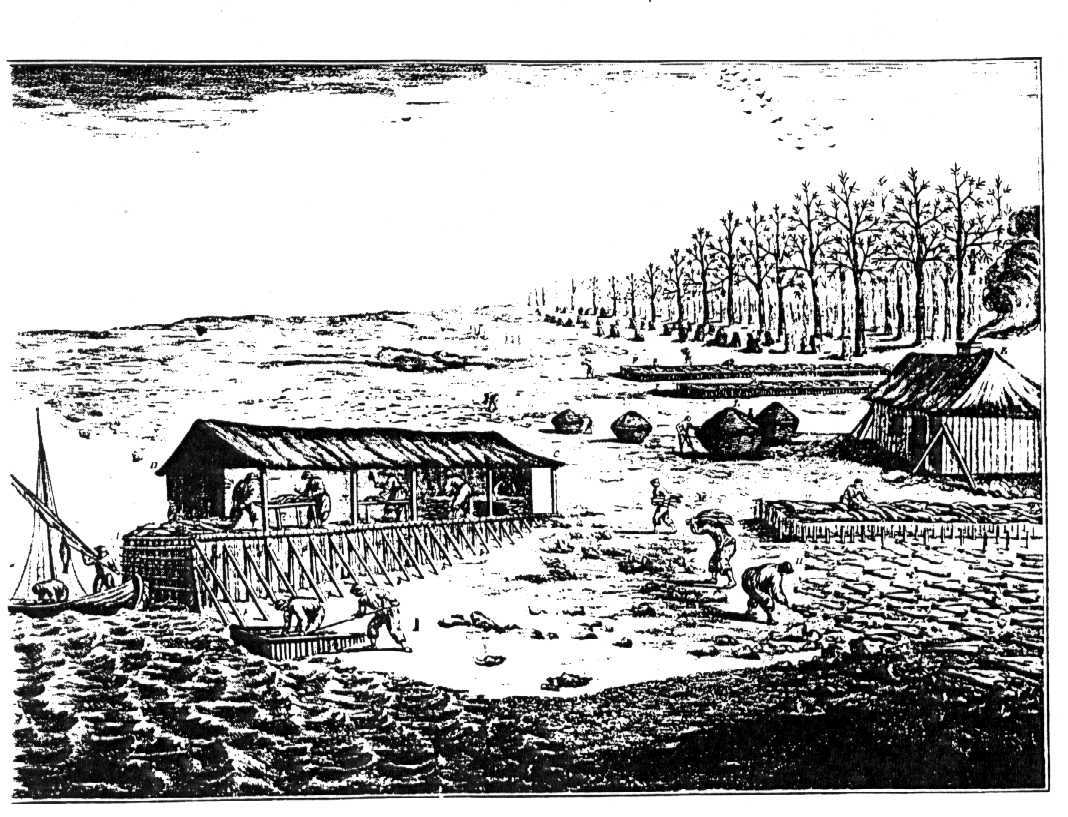
This lesson's visual focus: Specialty work at a fishing station in Maine. |
|---|

The merchant who outfitted a ship got a third. The shipowner took another third, but if he had borrowed to build the vessel, he paid interest to the lenders. The members of the crew divided the remaining third of the profit amongst themselves. They usually made three offshore voyages in a year.
The men paid for their own gear which came from England and was not cheap. They paid for twelve-dozen woven cotton lines, twenty-four-dozen iron fish hooks. They weighted the lines with lead sinkers. The bait was cut from mackerel, clams, and mussels.
Men who worked ashore as part of the fishing trade were relieved of militia dury. They tended, built, and repaired the stages where the catches were spread to dry.
Shipwrights and carpenters who worked on the construction of fishing vessels were also exempt from militia duty.